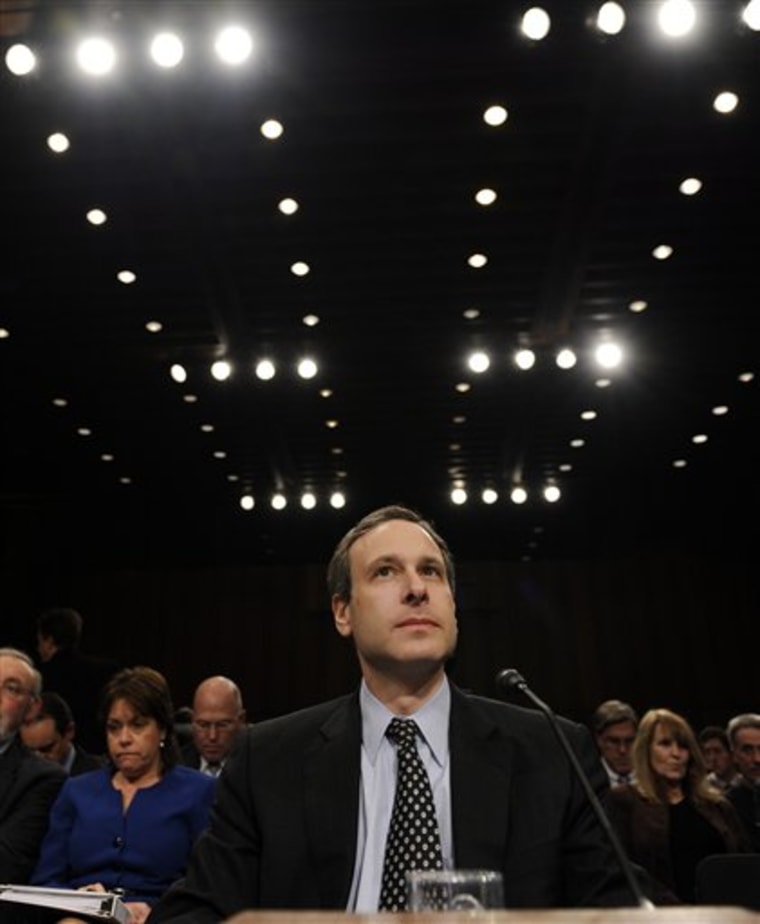So much for privatizing the federal government.
The Internal Revenue Service's decision this week to quit using debt collectors to dun delinquent taxpayers was celebrated by public employee unions as a pendulum shift after watching the Bush administration often opt for private contractors over federal workers to deliver government services.
The IRS program was a small one, bringing in a little more than $80 million since its inception in 2006. But it represented an ideological toehold for conservatives who believe that private companies are more efficient than government agencies.
It was an ideology embraced by former President George W. Bush, who famously — and unsuccessfully — toyed with the idea of partially privatizing Social Security.
Privatization won't disappear. It's too widespread in a federal government that relies on private contractors for work as diverse as computer programming and providing security in Iraq. But with a new Democratic administration in charge, experts don't expect to hear much about privatizing government functions from President Barack Obama.
"I think we're going to see a reversal of privatization," said Harvey B. Feigenbaum, a political science professor at George Washington University. "When contracts come up for renewal, they will see if it would be better for the public sector to do the work."
IRS contracts with private debt collection agencies to go after delinquent taxpayers expired Friday. In deciding not to renew them, IRS Commissioner Doug Shulman said he concluded after a monthlong review that tax collection could best be done by government workers.
The agency had been turning over to private debt collectors some delinquency cases, often in the $5,000 to $10,000 range, that the IRS lacked the manpower to pursue. The program cost about $7.6 million a year to administer, and private contractors were allowed to keep about a quarter of the taxes they collected.
The program brought in more money than it cost to operate, but it had become a political headache for the IRS. The union representing IRS workers and the National Taxpayer Advocate, an independent ombudsman within the agency, opposed the program, as did some Democrats in Congress. Other powerful lawmakers from both political parties supported it.
Colleen M. Kelley, president of the National Treasury Employees Union, said the decision to end the program "reaffirms" that "no one can perform the work of the federal government better than federal employees."
Sen. Charles Grassley of Iowa, the senior Republican on the Senate Finance Committee, disagreed. He said the IRS used flawed methods to review the program and succumbed to public employee unions and their allies.
"It seems the IRS and Treasury Department went out of their way to knock out an emerging, effective and evenhanded way to collect tax debt that the IRS will otherwise never collect," Grassley said. "It's discouraging when commonsense efforts to make things fair for honest taxpayers in a way that's decent and logical all around get beat down by vested, powerful interests in Washington."
Paul Light, a professor of public service at New York University, said he expects the Obama administration to de-emphasize the use of private contractors for government work. But, he said, that probably means hiring more government workers, which comes with the political baggage of enlarging the federal government.
"If you aren't going to contract out services, how are you going to provide them?" Light asked. "I'm fairly certain there will be an increase in the number of federal government workers."
At the IRS, Schulman said he expects to hire more than 1,000 workers this year to increase collections. He encouraged workers from private collection agencies to apply.
